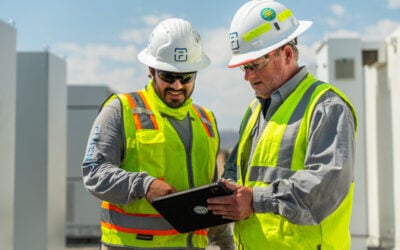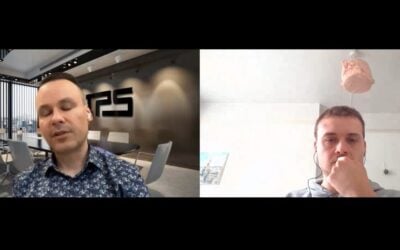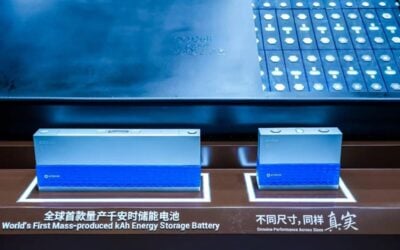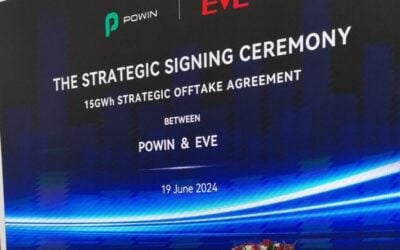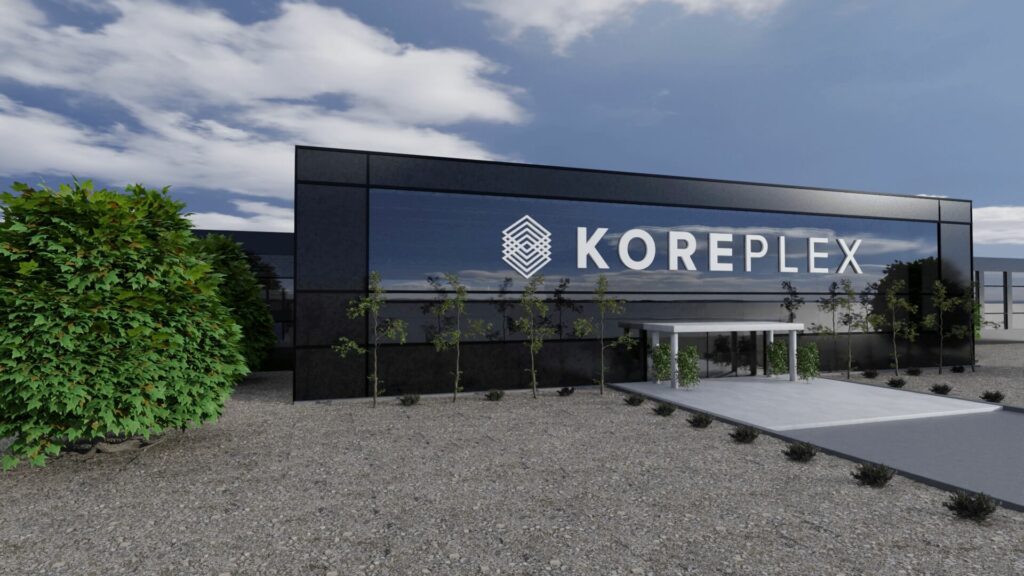
A multi-year offtake deal and technology partnership between US battery and storage system maker Kore Power and Japan’s Nidec were among the flurry of deals announced at RE+ last week.
Startup Kore Power is currently building a large-scale ‘gigafactory’ for battery cell production in Arizona, while it also manufactures and integrates battery energy storage system (BESS) packs, racks and complete systems.
Enjoy 12 months of exclusive analysis
- Regular insight and analysis of the industry’s biggest developments
- In-depth interviews with the industry’s leading figures
- Annual digital subscription to the PV Tech Power journal
- Discounts on Solar Media’s portfolio of events, in-person and virtual
The company has received an offer of a US$850 million conditional loan towards its factory plans from the US Department of Energy’s Loan Programs Office, which in its own words supports the deployment of “innovative clean energy, advanced transportation, and tribal energy projects” within the country.
Nidec meanwhile, is a Japanese corporation with a presence around the globe, active in areas ranging from robotics and industrial automation to motors, medical and healthcare, IT, household goods and battery storage.
KORE Power announced last Wednesday (14 September) that the pair have signed a supply agreement for Nidec North America to buy between 450MWh and 600MWh of lithium-ion battery cells, racks and modules in 2024.
The deal is expected to encompass a total of 2.2GWh by its completion in 2026. At present, KORE Power is thought to be sourcing cells from Chinese manufacturing partners, but its gigafactory – with a planned annual production capacity of 12GWh – should be up and running during 2025.
The two companies are strategic partners beyond that: Nidec was among investors in a 2022 Series A funding round for the battery startup and under the terms of the newest agreement Nidec will supply between 225MVA and 1,100MVA of power conversion system (PCS) equipment to Kore Power.
Additionally, the pair will collaborate on creating turnkey energy storage systems suitable for commercial and industrial (C&I) and utility-scale applications, integrating DC blocks from Kore and PCS from Nidec.
Rapidly growing interest in both upstream and downstream US markets
The pair are responding to rapidly growing interest in the US and wider North American BESS markets. As mentioned above, the deal was one of several announced between battery storage system integrators and battery suppliers during RE+, the clean energy trade event, which this year was held in Las Vegas, Nevada.
Those included tie-ups between Wartsila and EVE Energy for an undisclosed amount of products, and a 750MWh lithium carbonate price-indexed deal between geothermal company Ormat’s energy storage division and Gotion.
However one of the biggest deals announced during last week’s event was between French battery manufacturing startup Verkor, and Nidec ASI, the Italy-headquartered power solutions and BESS integrator subsidiary of Nidec.
That was for the pair to co-produce 10GWh of turnkey energy storage system (ESS) solutions, expected to be delivered from 2025 to 2040 using Verkor cells and modules paired with Nidec ASI’s battery management system (BMS) and integrated by Nidec ASI.
That deal is thought to sit separately outside the scope of the activities of Nidec North America, with Nidec ASI to date having worked mainly on projects in Europe.
For Nidec North America meanwhile the lure of Kore Power having production facilities imminently in its target market is likely to have been a driver for the deal. Manufacturers of clean energy technologies with sufficient levels of domestically produced content qualify for higher incentive rates for both production and deployment in the US due to the Inflation Reduction Act (IRA) legislation.
This has already led to hundreds of billions of dollars of investment committed to for manufacturing in the US, while several sources Energy-Storage.news spoke with at the Vegas show said that localisation of supply chains would be a smart strategy irrespective of the IRA upside.
While Kore Power also intends to supply products to the automotive industry for electric vehicles (EVs), the company has long been vocal in its aim of supplying into the BESS space too. In August it announced a deal for up to 7GWh of US-made batteries by 2027 with Energy Vault.
Additionally, in a special hearing with US Energy Secretary Jennifer Granholm a couple of years ago, Kore CEO Lindsay Gorrill emphasised the importance of the battery cell as the “fundamental basic unit all of these technologies rely on” in capturing the full economic and technology performance benefits of electrification and renewable energy.


